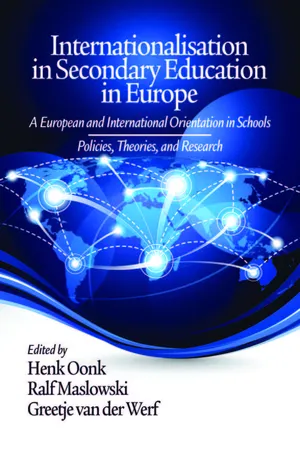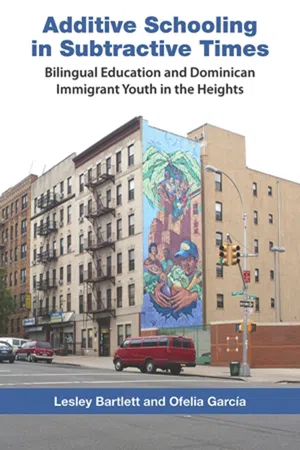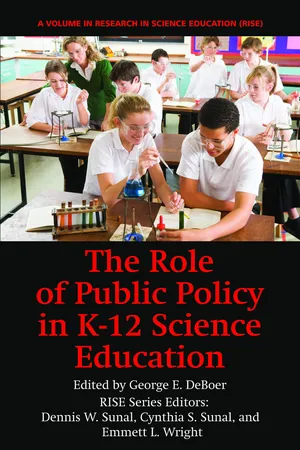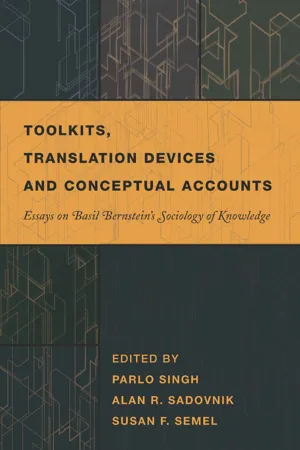Social Sciences
Educational Policies
Educational policies refer to the guidelines, laws, and regulations set by governments or educational institutions to shape the structure and delivery of education. These policies often address issues such as curriculum development, funding, teacher training, and student assessment. They aim to ensure quality education, equal opportunities, and the overall improvement of the education system.
Written by Perlego with AI-assistance
Related key terms
1 of 5
5 Key excerpts on "Educational Policies"
- eBook - PDF
- Anneliese Dodds(Author)
- 2018(Publication Date)
- Bloomsbury Academic(Publisher)
As mentioned, governments may also attempt to shape education policy through the provision of information. Hence, in numerous countries, changes to education policy at different levels or in relation to different subjects (Samoff, 2007 : 50) have followed the creation of government commissions. These have included the Faure deliberations following student unrest in France in 1968, the U68 Commission in Sweden, the 1976 West German Hochschulrahmengesetz (Neave and Van Vught, 1991 a: xi) and the Dearing Commission and Browne Review on English Higher Education which reported in 1997 and 2010, respectively. The Scope of Education Policy The impact of education policies on different sectors of the population has been historically highly uneven. First, the inclusion and performance of girls and women in education has been steadily expanding in industrialized nations. However, girls and women tend to study different fields than boys and men, with a strong over-representation of men in subjects such as science and technology in most OECD countries (Stromquist, 2007 : 163); and formally open educational systems may informally still discrimi-nate against women and girls (Wiseman et al., 2009 ). 262 Education Policy Second, numerous studies have indicated how and why middle-class pupils gen-erally fare better out of educational systems than working-class students (Bourdieu, 1996 ). Some have argued that this has intensified with the introduction of more choice-based mechanisms in education, which are often easier for middle-class par-ents to manipulate (Apple, 2007 : 307). Regardless of the degree of choice, however, poorer children generally face greater barriers to learning than other children, which then affects their ability to perform well in examinations. - Henk Oonk, Ralf Maslowski, Greetje van der Werf(Authors)
- 2016(Publication Date)
- Information Age Publishing(Publisher)
Internationalisation in Secondary Education in Europe, pages 355–368 Copyright © 2011 by Information Age Publishing All rights of reproduction in any form reserved. 355 CHAPTER 22 OPPORTUNITIES FOR SUCCESSFUL EDUCATIONAL POLICY Jaap Dronkers Any discussion of Educational Policies aimed at reducing educational in- equality is necessarily subjective, even if the policies are based on recent research and lessons that have been learned from past mistakes. Although it is possible to learn from mistakes, these mistakes cannot provide a recipe for the future, as history never literally repeats itself (as either tragedy or comedy). In hindsight, academic research might be successful in explain- ing social phenomena, but such insights cannot produce a set of unques- tionable rules for the future. There are two important limitations to the possibility of reducing edu- cational inequality. Policies are unable to remove or compensate for funda- mental social inequalities, as they are too strongly associated with the divi- sion of labor in and between societies. This does not mean that the division of labor—and therefore social inequality—is fixed, but it does mean that new divisions of labor will be accompanied by new and different inequali- ties. 1 Educational policy is capable, though, of cushioning and softening the consequences of inequality: first, by limiting the extreme consequences 356 J. DRONKERS of inequality as much as possible, and second, by being alert to new forms of inequality. The latter point highlights the second important limitation: Continu- ous shifts are taking place in the sum of the many, partly opposing, proc- esses in and around education, which I have outlined above. These shifts are only partly the consequences of educational policy. Usually, they are the result of the reactions to social developments both inside and outside of education.- eBook - PDF
Additive Schooling in Subtractive Times
Bilingual Education and Dominican Immigrant Youth in the Heights
- Lesley Bartlett, Ofelia Garcia(Authors)
- 2011(Publication Date)
- Vanderbilt University Press(Publisher)
51 3 Education Policy as Social Context The study of immigrant education requires careful at-tention to the ways in which Educational Policies, made and remade at various levels over time, affect the daily work of schooling immigrant students. To understand schooling at Luperón demands an analysis of federal bilingual educational policy and NCLB legislation, as well as state and city policy responses, including the ways in which local organiza-tions advocate for ethnic and linguistic minorities. It also requires that we consider the emergence of political support for the model of small schools. Federal policies circulate across multiple state, district, and school contexts and situations, shaping everyday practices (Levinson and Sut-ton 2001). Relevant policies must be studied “vertically”—that is, across time and across national, state, and local contexts, both in and outside of schools (Vavrus and Bartlett 2009). Such a vertical approach to policy study seeks to reveal “the ideologies, structures, and practices which are used to legitimate, effectuate, and reproduce an unequal division of power and resources (both material and immaterial) between groups which are defined on the basis of language” (Phillipson 1992, 47). In this chapter, we consider interconnections between bilingual edu-cation policy in its disparate forms, the advent of accountability measures and how they got implemented at various levels, the small schools move-ment, and self-determination efforts by groups representing ethnic and linguistic minorities in New York. In Chapter 4, we examine how these various forces shaped Gregorio Luperón High School during its early decades, affording certain practices within the school even as they con-strained instruction in other ways. - George E. DeBoer(Author)
- 2007(Publication Date)
- Information Age Publishing(Publisher)
The Role of Public Policy in K − 12 Science Education, pp. 13–46 Copyright © 2011 by Information Age Publishing All rights of reproduction in any form reserved. 13 SCIENCE EDUCATION POLICY AND ITS RELATIONSHIP WITH RESEARCH AND PRACTICE Lessons From Europe and the United Kingdom Jonathan Osborne INTRODUCTION The intersection between research, policy, and practice is complex. In this chapter, I explore the nature of that relationship as it has developed in Europe, but more particularly in the United Kingdom in the context of science education. The primary role of research is to contribute to our knowledge of the world, in the case of education, to understand a particular aspect of the social world. Policy and practice, in contrast, are dominated by debates about what should be done and, in the case of sci-ence education, by issues such as the best way to improve students’ engagement with science, whether the level of student understanding of science is as high as we think it should be, and whether the numbers of CHAPTER 2 14 J. OSBORNE students pursuing full-time study of science should be increased. In other words, researchers answer fundamentally different kinds of questions than policymakers do: research deals with questions of what is and why, whereas policy deals with questions of value, judgment, and action. This chapter offers an analysis of the interrelationship between research, pol-icy, and practice. It is intended to illuminate the lessons that might be learned by those who wish their research to influence policy and ulti-mately affect practice. The first half of the chapter examines how research intersects with pol-icy and practice. It begins by exploring the contributions research can make to the decision-making process policymakers and practitioners must undertake. First, research supplies empirical evidence of cause and effect relationships and provides insights into certain forms of behavior and action.- eBook - PDF
Toolkits, Translation Devices and Conceptual Accounts
Essays on Basil Bernsteins Sociology of Knowledge
- Parlo Singh, Alan R. Sadovnik, Susan F. Semel(Authors)
- 2011(Publication Date)
Sociological analyses of educational policy are, for some tastes and purposes, sometimes too global or too national or too local, others insufficiently detailed, while some are immured in technical detail. Many lose individual actors in the structural wood and vice versa and ‘bricolage’ is everywhere, turning explanation of the apparent randomness of some policy process-es into ‘flailing around for anything that looks as if it might work’ (Ball 1998, p. 126) While lots of honest, rational endeavour is poured in to policy making it would be a mistake to picture it, then, simply as the domain of wise people seeking clear and just goals. Partiality, ideology and self seeking are mixed with altruism and the pur-suit of ‘public interest.’ Moreover, there is a rich and dynamic interior to processes and the sites where they take place. Many ideologically accented voices clamour for attention to their own causes. Institutions, whether departments of state, ‘think tanks,’ official agencies, publishers, teachers’ associations, local education commit-tees or school staffrooms all have ‘lives of their own.’ To borrow Lee Shulman’s (1987) marvellous observation on classrooms, ‘stuff happens,’ everywhere there is play and contingency at the lived end of the forces of power and control. Policy making can be regarded, then, as a multidimensional and value-laden state activity that exists in context. Evans, Rich, Davies and Allwood (2008a) seek to distinguish this as policy with a big ‘P’ from its more local, institutional corre-34 | ESSAYS ON BASIL BERNSTEIN ’ S SOCIOLOGY OF KNOWLEDGE lates that only manage little ‘p’s. We all accept that policy is always more than the text and in education it interacts with those in other fields.
Index pages curate the most relevant extracts from our library of academic textbooks. They’ve been created using an in-house natural language model (NLM), each adding context and meaning to key research topics.




